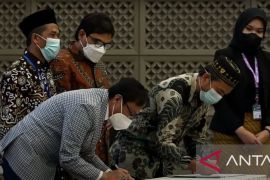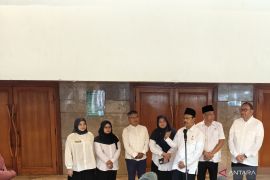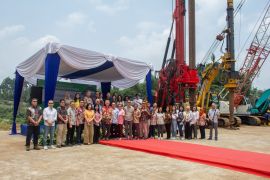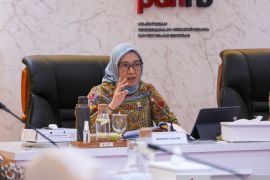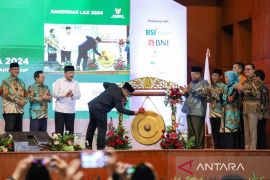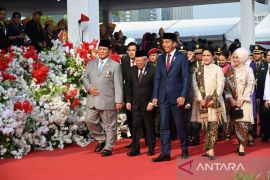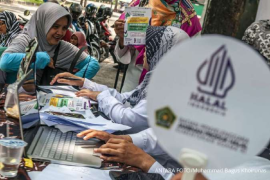"As a democratic country, the Constitution is the one that protects to ensure that no group forces its will upon others, moreover to become a dictator," Jokowi said.Solo, C Java (ANTARA News) - President Joko Widodo has stated that no institution has absolute power in a democratic nation such as Indonesia.
"As a democratic country, the Constitution is the one that protects to ensure that no group forces its will upon others, moreover to become a dictator," he said in his opening remarks during an international symposium on "Constitutional Court as Guardian of Ideology and Democracy in Pluralistic Community" held at the State University of Solo, here, Wednesday.
In this constitutional state, there are no first- or second-class citizens, there are only Indonesian citizens, he emphasized.
"This experience has strengthened my belief that the Constitution is a guardian of pluralism and diversity, including the diversity of opinion, as a character of a democratic country, as well as diversities of ethnicity, culture, and religion," he noted.
The Constitution has ensured that no group can force its will without respecting the rights of other citizens, he added.
"Moreover, as a democratic country, Indonesia has made its Constitution as the main reference in building sound democratic practices," he stated.
The Constitution also ensures a balance of power among state institutions to ensure mutual supervision and control.
The challenge in implementing the Constitution, however, is not easy, as the situation worldwide has been changing rapidly.
There are several new issues emerging, such as radicalism, terrorism, globalization, illicit drug trafficking, human trafficking, smuggling of weapons, and cybercrimes, he noted.
"The generation has also changed. Now, we meet many young people of the Millennium generation, or Generation Y, having a different thought process as compared to the previous generations," he noted.
He said the next challenge is how to make the younger generation develop a deeper understanding of the values and spirit of the Constitution.
"In this case, the Constitutional Court (MK) has played a crucial role in the country. MK is the one that interprets the Constitution, so it could remain a national and state beacon and a source of inspiration in responding to new challenges," he remarked.
He expressed hope that during the symposium, the constitutional courts of several countries would share their experiences and learn from each other.(*)
Editor: Heru Purwanto
Copyright © ANTARA 2017

